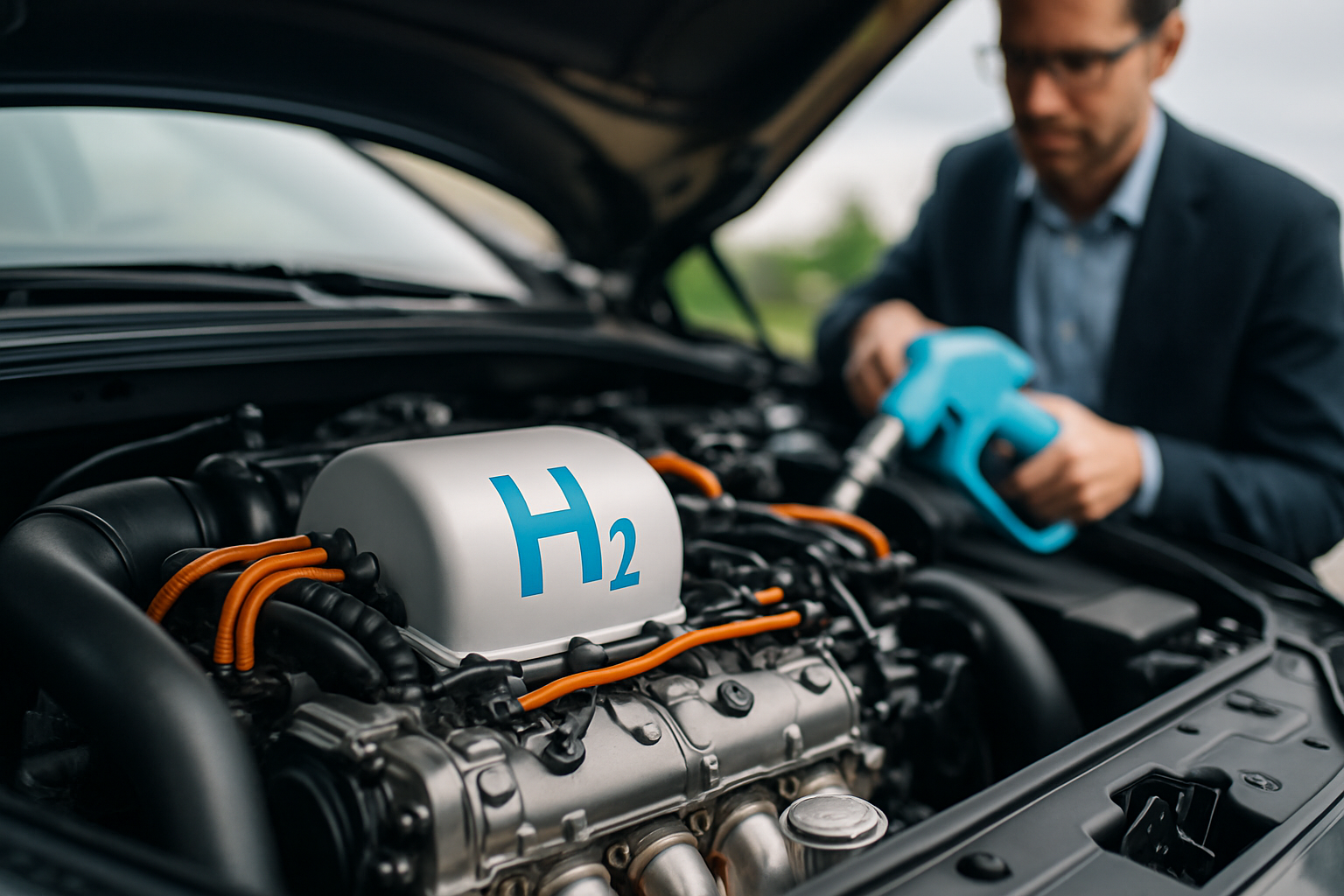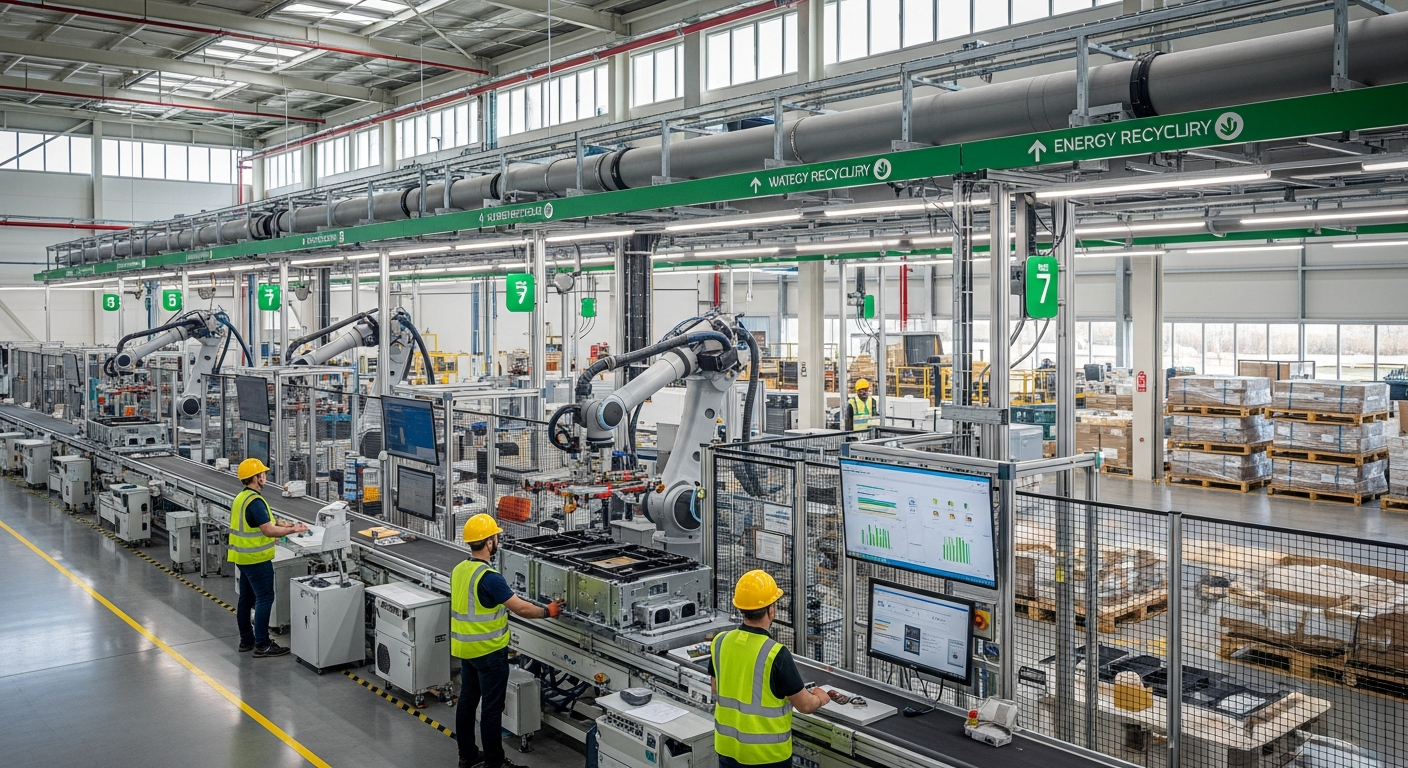The Resurgence of Hydrogen Fuel Cell Vehicles
As the automotive landscape shifts towards greener technologies, hydrogen fuel cell vehicles are experiencing a remarkable comeback. Once relegated to the sidelines, these innovative machines are now poised to revolutionize the way we think about clean transportation. What's driving this renewed interest in hydrogen power, and how might it reshape the future of mobility?

The Science Behind Hydrogen Fuel Cells
At the heart of hydrogen fuel cell vehicles lies a complex yet elegant system that converts hydrogen into electricity. Unlike traditional internal combustion engines, fuel cells produce electricity through an electrochemical reaction between hydrogen and oxygen. This process generates only water vapor as a byproduct, making it an exceptionally clean energy source.
The fuel cell stack consists of multiple cells, each containing an anode, cathode, and electrolyte membrane. Hydrogen is fed into the anode side, where it’s split into protons and electrons. The protons pass through the electrolyte membrane to the cathode, while the electrons are forced through an external circuit, creating an electric current. At the cathode, the protons and electrons reunite with oxygen from the air, producing water as the only emission.
Advancements in Hydrogen Storage and Distribution
One of the biggest hurdles facing hydrogen fuel cell vehicles has been the storage and distribution of hydrogen itself. However, recent breakthroughs in high-pressure storage tanks and cryogenic liquefaction have significantly improved the range and practicality of these vehicles.
Modern hydrogen fuel cell vehicles can now store hydrogen at pressures up to 700 bar, allowing for ranges comparable to conventional gasoline-powered cars. Additionally, advancements in hydrogen production methods, including green hydrogen produced through electrolysis powered by renewable energy, are making the fuel source more sustainable and cost-effective.
The Efficiency Advantage
Hydrogen fuel cell vehicles boast impressive efficiency ratings, often surpassing those of traditional internal combustion engines. The direct conversion of hydrogen to electricity eliminates many of the energy losses associated with combustion processes, resulting in overall efficiency rates of up to 60%.
This high efficiency translates to excellent performance characteristics, including quick acceleration and smooth power delivery. Moreover, the instant torque provided by electric motors powered by fuel cells offers a driving experience that rivals, and in some cases exceeds, that of conventional vehicles.
Infrastructure Development and Industry Collaboration
The success of hydrogen fuel cell vehicles hinges on the development of a robust refueling infrastructure. While still in its infancy, the hydrogen fueling network is expanding rapidly, particularly in countries like Japan, Germany, and parts of the United States.
Major automakers, energy companies, and governments are collaborating to accelerate the rollout of hydrogen fueling stations. These partnerships are crucial for overcoming the chicken-and-egg problem that has historically plagued alternative fuel technologies – the need for both vehicles and infrastructure to develop simultaneously.
Challenges and Future Outlook
Despite the promising advancements, hydrogen fuel cell vehicles face several challenges. The cost of fuel cell technology remains high, although economies of scale are expected to drive prices down as production volumes increase. Additionally, the energy-intensive process of producing and transporting hydrogen raises questions about its overall environmental impact, particularly when compared to battery electric vehicles.
However, proponents argue that hydrogen fuel cells offer unique advantages, especially for long-distance travel, heavy-duty vehicles, and applications where quick refueling is essential. As the technology matures and infrastructure expands, hydrogen fuel cell vehicles could play a significant role in a diversified, sustainable transportation ecosystem.
The resurgence of hydrogen fuel cell vehicles represents a fascinating chapter in the ongoing evolution of automotive technology. As we continue to seek cleaner, more efficient ways to power our vehicles, hydrogen fuel cells offer a compelling alternative that combines zero-emission operation with the convenience of quick refueling. While challenges remain, the potential of this technology to reshape the automotive landscape is undeniable, promising a future where the only thing coming out of our tailpipes is clean water vapor.






